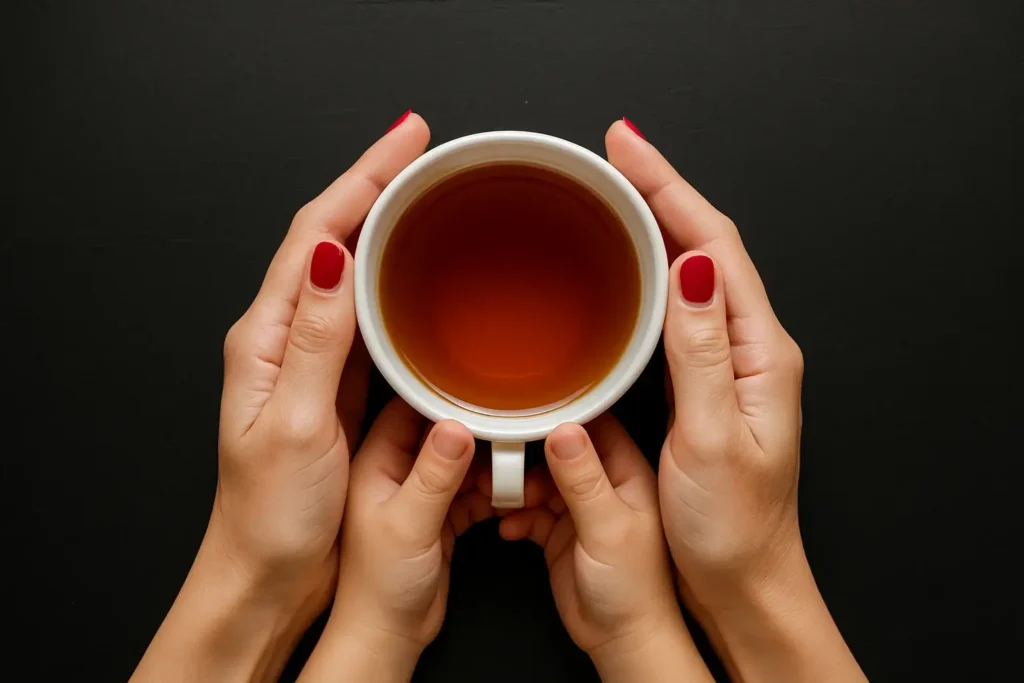8 Teas to Drink for a Healthier Body and Mind: Natural Remedies to Boost Wellness!
🫖 Introduction: The Power of Tea for Health
Tea isn’t just a soothing beverage—it’s a centuries-old wellness remedy. Across cultures and traditions, tea has been used to calm the mind, ease digestion, fight inflammation, and improve overall health. Whether you’re managing stress, looking to boost immunity, or aiming for clearer skin, there’s likely a tea that fits the bill.
In this guide, we’ll explore eight of the most beneficial teas for the body and mind, with practical tips on how and when to consume them. From chamomile’s calming properties to matcha’s energy-boosting power, you’ll learn how your next cup of tea can help transform your health—naturally.

🍵 1. Green Tea—The Antioxidant Powerhouse
✅ Health Benefits of Green Tea
Green tea is one of the world’s most researched and praised teas. Rich in antioxidants—especially catechins like EGCG (epigallocatechin gallate)—green tea helps combat oxidative stress, a major contributor to aging and chronic disease.
Key Benefits:
- Boosts metabolism and aids weight loss
- Improves brain function (thanks to caffeine and L-theanine)
- Supports heart health by lowering LDL cholesterol
- It may reduce the risk of certain cancers
- Protects the skin from UV damage
Green tea is often consumed in the morning or early afternoon for a clean, gentle energy lift without the jitters of coffee.
🍵 How to Brew Green Tea for Best Results
Brewing green tea properly is crucial to avoid bitterness and maximize benefits:
- Water Temperature: 160°F to 180°F (not boiling)
- Steeping Time: 1–3 minutes
- Add-Ins: Lemon (enhances antioxidant absorption), honey, or mint
If you drink your tea too hot or too long, it will taste bitter, masking the delicate grassy flavors that make it so refreshing.
Learn more: Top 8 Healthy Teas to Boost Body & Mind Naturally

🌼 2. Chamomile Tea—Your Bedtime Companion
😴 Chamomile for Stress and Sleep
Chamomile tea is widely known for its calming effects. Derived from the dried flowers of the chamomile plant, it’s a natural sedative that can help reduce anxiety and promote better sleep.
Benefits Include:
- It acts as a mild tranquilizer and sleep aid
- Soothes digestive issues and upset stomachs
- It helps reduce menstrual pain
- It calms the nerves and may aid in managing mild depression
🧘♀️ Who Should Drink Chamomile Tea
Chamomile is excellent for:
- Anyone struggling with insomnia
- People dealing with high stress or anxiety
- Individuals needing gentle digestive support after meals
It’s caffeine-free and best consumed 30 minutes before bedtime. However, those allergic to ragweed or daisies should avoid it.
Following Sections Coming Up:
- Peppermint Tea
- Ginger Tea
- Hibiscus Tea
- Matcha
- Rooibos
- Turmeric Tea
- FAQs
- Conclusion
Would you like me to continue with the following sections now?
Certainly! Here’s the continuation of the article:
🌿 3. Peppermint Tea—The Gut Healer
🧬 Peppermint Tea and Digestion
Peppermint tea is a go-to herbal remedy for stomach woes. Its antispasmodic properties help relax the gastrointestinal tract muscles, making it highly effective for easing bloating, indigestion, and cramps.
Top Health Benefits:
- Alleviates symptoms of irritable bowel syndrome (IBS)
- Relieves headaches due to its menthol content
- Acts as a natural decongestant
- It helps freshen breath and fight oral bacteria
Peppermint contains no caffeine, making it a suitable option for any time of day.
⏰ Best Times to Drink Peppermint Tea
The best time to drink peppermint tea is
- After meals, to promote digestion
- When experiencing gas or bloating
- Before bed, especially if you’re prone to nighttime indigestion
While generally safe, peppermint tea may not be ideal for those with acid reflux, as it can relax the lower esophageal sphincter and potentially worsen symptoms.
🫚 4. Ginger Tea—The Immune Booster
🛡️ Fighting Inflammation with Ginger Tea
Ginger tea is fiery, flavorful, and famously therapeutic. With a long history in Ayurveda and traditional Chinese medicine, ginger is revered for its anti-inflammatory and immune-boosting properties.
Primary Benefits:
- Eases nausea and morning sickness
- Boosts immune function
- Relieves joint and muscle pain
- It helps control blood sugar levels
- Improves circulation
Rich in compounds like gingerol, this tea can be a natural remedy for colds and flu, especially during the colder months.

🥄 Ginger Tea Recipes You’ll Love
Here’s a simple yet effective recipe to try:
Spiced Ginger Immunity Tea
- 1-inch fresh ginger root (sliced)
- 1 tsp honey
- ½ lemon (juiced)
- 1 pinch of cayenne pepper (optional)
- 2 cups water
Boil water with ginger slices for 10 minutes, strain, add lemon and honey, and enjoy!
🌺 5. Hibiscus Tea—Heart Health Hero
❤️ Lowering Blood Pressure Naturally
Hibiscus tea is as vibrant in color as it is in benefits. Known for its tart, cranberry-like flavor, this ruby-red tea is rich in antioxidants and scientifically proven to help lower blood pressure.
Major Health Benefits:
- Reduces systolic and diastolic blood pressure
- It contains powerful antioxidants like anthocyanins
- Supports liver function
- Aids in weight management
- Promotes heart health
It’s a perfect summertime drink that can be served hot or iced.
⚠️ When to Avoid Hibiscus Tea
Although incredibly healthy, hibiscus tea should be avoided by
- Pregnant women (due to its potential to affect hormone levels)
- People taking medications for high blood pressure or diabetes (can enhance the effects)
- Individuals with low blood pressure
Drink in moderation and consult with a healthcare provider if you’re on medication.
🍵 6. Matcha—Focus and Energy in a Cup
🧠 Matcha vs. Green Tea
Matcha is a type of powdered green tea that packs a much bigger punch. Unlike regular green tea, which involves steeping and discarding the leaves, matcha involves consuming the entire leaf in powdered form, offering higher concentrations of nutrients and antioxidants.
Advantages Over Green Tea:
- Provides more sustained energy (caffeine + L-theanine synergy)
- Rich in chlorophyll and detoxifying compounds
- Enhances memory, focus, and concentration
- Contains up to 137x more EGCG than traditional green tea
It’s the perfect tea to sip before work, study sessions, or workouts.
🍵 Best Ways to Enjoy Matcha
Simple Matcha Latte Recipe:
- 1 tsp matcha powder
- 2 oz hot water (not boiling)
- 6 oz steamed milk (dairy or plant-based)
- Sweetener of choice (optional)
Whisk the matcha with hot water until frothy, then stir in the milk. That’s it—your creamy green elixir is ready.
☕ 7. Rooibos Tea—The Caffeine-Free Wonder
🌱 Nutritional Profile of Rooibos
Native to South Africa, rooibos tea is naturally caffeine-free and full of minerals like calcium, magnesium, and zinc. It’s also packed with antioxidants such as aspalathin and quercetin, which can fight free radicals and inflammation.
Health Benefits:
- Supports bone health
- It may reduce allergy symptoms
- Promotes heart health
- It helps regulate blood sugar
- Encourages healthy skin aging
Its sweet, earthy flavor makes it a great alternative to black tea—without the caffeine crash.
✨ Rooibos for Skin and Aging
Rooibos contains alpha hydroxy acids and zinc, which makes it beneficial for skin conditions like eczema and acne. Topical application or regular consumption can help reduce wrinkles and improve skin elasticity.
🌞 8. Turmeric Tea—Anti-Inflammatory Gold
💛 How Curcumin Helps the Body and Brain
Turmeric tea, often called “golden tea” or “golden milk,” is famous for its active ingredient, curcumin—a potent anti-inflammatory compound that supports overall health.
Notable Benefits:
- Eases joint pain and arthritis
- Enhances brain function and memory
- Supports liver detoxification
- It may lower the risk of heart disease
- Helps fight depression
For best results, consume with black pepper to boost curcumin’s bioavailability.
🥛 Golden Milk Recipe for Wellness
Golden Milk (Turmeric Latte):
- 1 cup milk (dairy or plant-based)
- 1 tsp turmeric powder
- ¼ tsp black pepper
- ½ tsp cinnamon
- 1 tsp honey or maple syrup
Warm everything together in a pot until just simmering. Whisk well and enjoy before bedtime or first thing in the morning.
❓ FAQs – Your Tea Questions Answered
Q1: Can I drink multiple types of tea in one day?
Yes! Just be mindful of your caffeine intake and any specific health conditions.
Q2: What’s the best tea for stress relief?
Chamomile and peppermint are top choices for calming the nervous system.
Q3: Are herbal teas safe during pregnancy?
Some, like ginger and rooibos, are generally safe in moderation. Always consult your doctor first.
Q4: What tea helps with weight loss?
Green tea and oolong tea are known to support metabolism and fat burning.
Q5: Can I sweeten my tea without compromising health benefits?
Yes—use natural sweeteners like honey, stevia, or maple syrup in moderation.
Q6: How should I store loose-leaf tea?
To preserve its flavor and potency, keep it in an airtight container away from light, heat, and moisture.
🧘 Conclusion: Sip Your Way to Wellness
Tea offers a delicious, easy, and time-honored way to nurture body and mind. Whether you’re seeking focus, stress relief, immune support, or better digestion, there’s a tea out there to meet your needs. Incorporating these eight teas into your routine can pave the way toward a more balanced, healthier lifestyle—one sip at a time.
So, put the kettle on, explore new flavors, and let nature’s healing powers flow into your cup.
Claim Lifetime Access to MTS Prompts Library: https://ko-fi.com/s/277d07bae3.
Would you like me to convert this into a downloadable format (PDF, Word) or help publish it to a blog?



